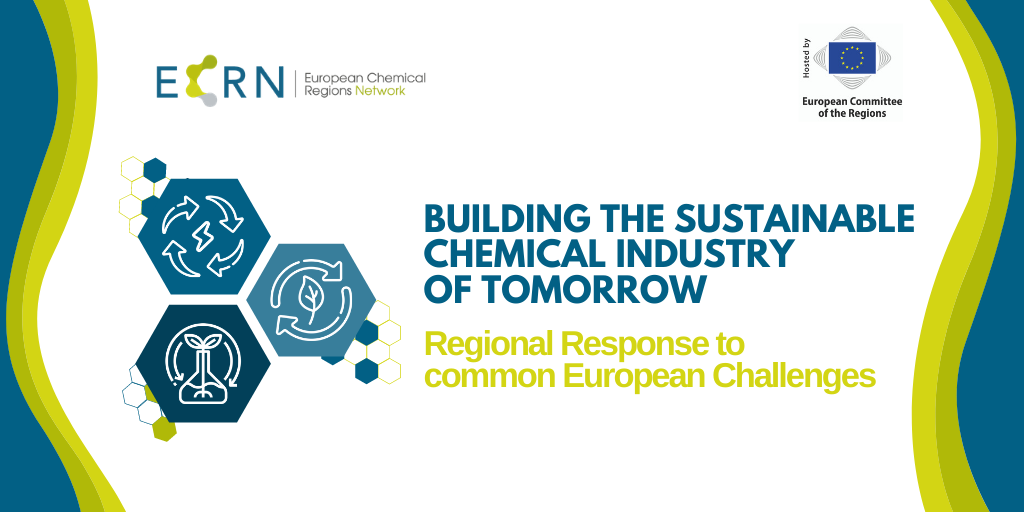

As recognised by the EU Hydrogen Strategy, renewable hydrogen is a key component for success in Europe’s energy transition. Hydrogen has various applications across industries and economic sectors and it can be used as a feedstock, fuel, or an energy carrier and storage. Most importantly, it is essential to decarbonise energy-intensive industries and to phase regions out of coal or natural gas, without jeopardizing economic growth, the competitiveness of our companies or our social prosperity.</p>
How can renewable hydrogen be successfully employed in the chemical industry?</li>
How can hydrogen make the difference to accelerate the chemical industry green transition?</li>
</ul>
This session will look at the role of hydrogen in the chemical industry energy transition</strong>. Representatives from local governments, EU institutions, and the private sector will reflect on what policy instruments and investments can accelerate the industry’s decarbonisation and modernization and how clean hydrogen will play a vital role in this process.</strong> The session will showcase regional experiences and best practices in the field of renewable energy and hydrogen.</p>
The chemical industry will play an important role in the transition to a circular bio-based economy in Europe. From the design phase of products to their end-of-life, the chemical industry can offer innovative solutions in every stage of the life-cycle of products. However, the chemical sector currently represents only 5% of the bio-based economy and 1% of biofuels production.</p>
What is the chemical industry’s potential to become more biobased?</li>
How the chemical sector can contribute to decrease the primary raw materials demand?</li>
</ul>
This session will focus on the potential of a sustainable bio-based economy in Europe to unlock new opportunities in the EU chemical sector.</strong> Local government officials, EU institutions and private sector representatives will discuss how the European chemical industry could benefit from a European bio-based economy and how to upscale bio-based chemical production in the EU</strong>. The session will showcase interregional cooperation experiences to boost bio-based chemical production at the local level.</p>
In the EU, the potential for recycling plastic waste remains largely unexploited. Only 15% of EU-collected plastic waste in the EU finds its way back into the EU plastic market. Chemical recycling can treat waste that can’t be recycled mechanically, and therefore plays an important role in the mix of solutions to tackle the problem of plastic waste.</p>
How chemical recycling can help build a safer circular economy?</li>
Can chemical recycle really halt plastic waste?</li>
</ul>
This session will look at innovative solutions and technologies to tackle plastic waste in Europe.</strong> Representatives from local governments, EU institutions and the private sector will reflect on how the chemical industry can help to close the loop for plastics and how chemical recycling can offer a solution to endlessly recycle all plastic waste back into its original components.</strong> The session will showcase regional best practices and examples of the implementation of new emerging technologies in the field of circular economy and plastic recycling.</p>
2024 © Copyright, Pitch Communication Agency. All Rights Reserved. Privacy Policy